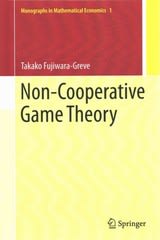Question
Measuring Uncommitted Patrol Time Several years ago the Chief of the Bigton Police Department wanted to implement a Community/Problem Oriented Policing Strategy. Part of this
Measuring Uncommitted Patrol Time
Several years ago the Chief of the Bigton Police Department wanted to implement a Community/Problem Oriented Policing Strategy. Part of this strategy was to encourage existing patrol officers to use their uncommitted patrol time to engage community groups (e.g. neighborhood associations) in developing strategies for reducing crime. These strategies involve meeting with community groups, identifying crime patterns, developing plans for addressing these problems and assessing the overall effect of these problems.
To do this the Chief asked a consultant to measure the amount of uncommitted patrol time over a 'typical' eight hour shift. This consultant selected a large sample of patrol officers and assigned research assistance to record the amount of time (using stopwatches) that officers spent actually engaged in work (e.g. responding to calls for service, conducting traffic stops, writing reports, etc.). These times when totaled represented the amount of time that officers actually worked. The difference between these times and the total shift time represents uncommitted time, or the amount of time officers could use to work with community groups to develop crime control strategies. Here are the consultant's key findings.
"The average (mean) amount of uncommitted patrol time per officer is 3.4 hours per shift. This represents the time officers could use to develop proactive crime control strategies with community groups. The standard deviation is +/- 2.5 hours."
Using this information the Chief decided to require patrol officers to conduct 3 hours of 'community engagement' per shift. The Bigton Police Officers Benevolent Association, the labor organization that represents the officers, objected to this assignment. They argued that this new work requirement is unreasonable.
*I am struggling more with the explanation as to why or why not this new work requirement is unreasonable. I am not sure how to explain that. I would greatly appreciate some assistance.
INSTRUCTIONS: Based on the consultant's findings, using what you know about the relationship between the mean and the standard deviation (from the normal distribution mini-lecture), how realistic is the Chief's assignment?
Step by Step Solution
There are 3 Steps involved in it
Step: 1

Get Instant Access to Expert-Tailored Solutions
See step-by-step solutions with expert insights and AI powered tools for academic success
Step: 2

Step: 3

Ace Your Homework with AI
Get the answers you need in no time with our AI-driven, step-by-step assistance
Get Started


